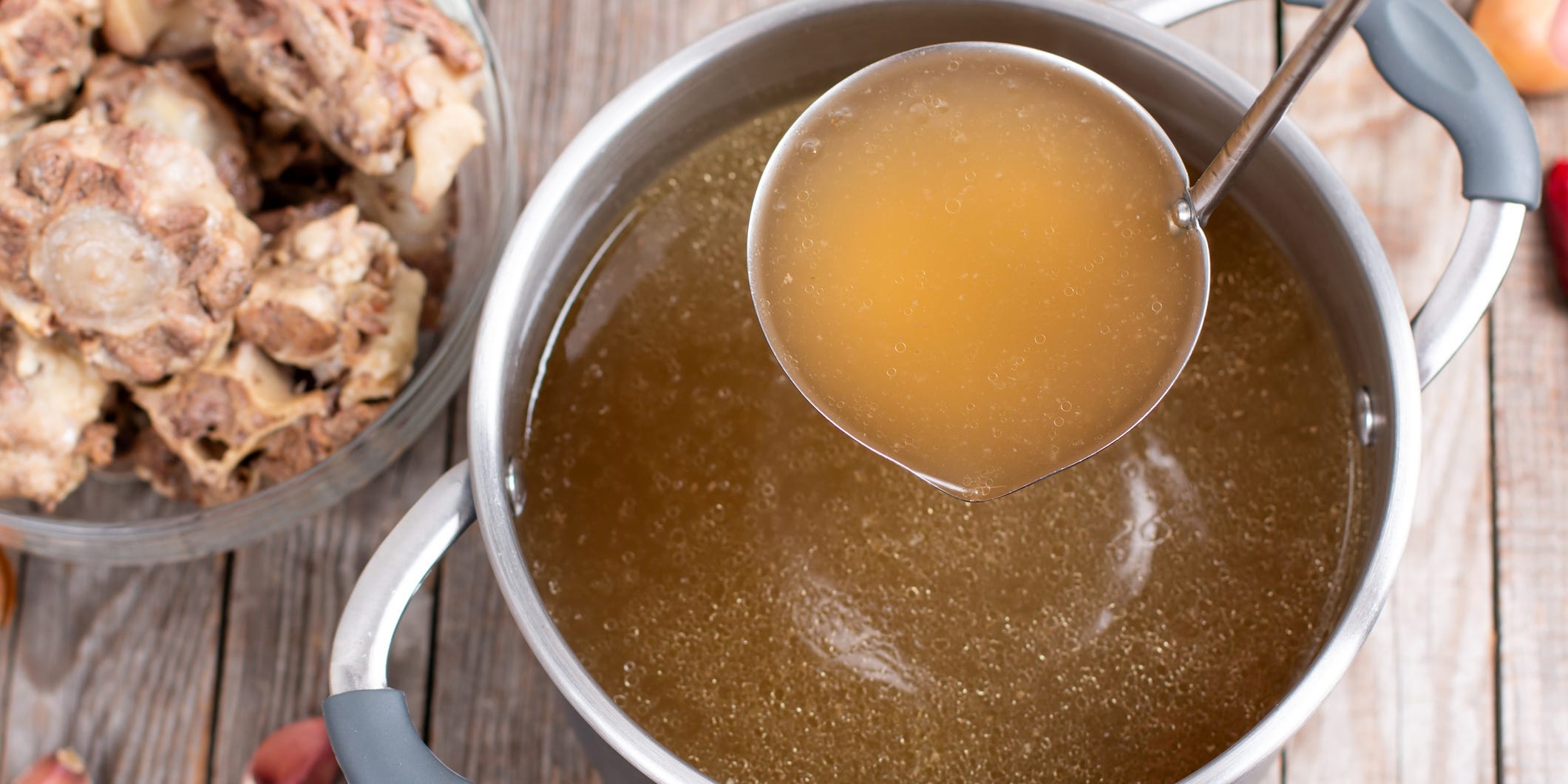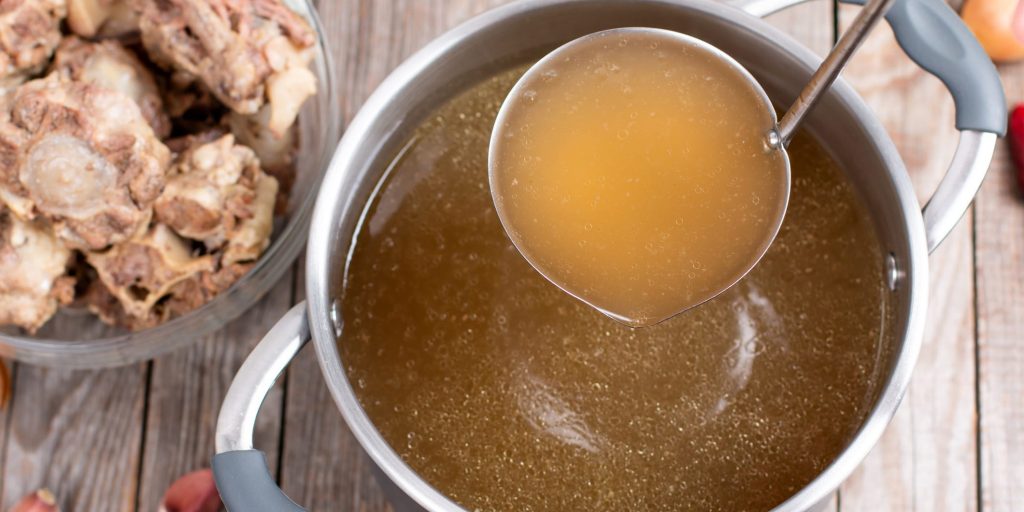
Qwart/Getty Images
- The bone broth diet has users fast for 2 days and then, eat a low-carb diet for the other five.
- While the bone broth diet does help people lose weight, it is not sustainable long-term.
- Instead, focus on a diet of whole foods and limit processed sugar and carbohydrates.
- Visit Insider's Health Reference library for more advice.
The bone broth diet promises people can lose up to 15 pounds and 4 inches in just 21 days by eating a low-carb, whole-food meal plan between periods of fasting. However, there is little research to support these claims.
Since the diet is so restrictive, it is not recommended for people who are pregnant or who have a history of eating disorders, says Ruby Ali, a registered dietitian at BIOHM Health and founder of Simply Supercharged. Additionally, if you have an underlying health condition, are under the age of 18, on medication, or highly active, you should talk to your doctor before beginning a bone broth diet.
Here's what you need to know about the diet including how effective it is.
What is the Bone Broth Diet?
The bone broth diet is a weight loss plan that combines several dieting trends, including paleo, low-carb, and intermittent fasting, says Ali. The hallmark of the diet is that it encourages users to consume high amounts of bone broth – a nutrient-dense liquid made from boiling animal bones and joints.
The diet lasts three weeks, and each week is structured as follows, according to Ali:
- Two non-consecutive fasting days, where you consume 5 to 6 cups of bone broth daily, avoid eating past 7 p.m. and eat 300 to 500 calories.
- Five non-fasting days, where you consume 2 to 3 cups of bone broth between three paleo-style meals and avoid eating past 7 p.m. As a general rule, Ali recommends that for each meal, half your plate be non-starchy vegetables, a quarter should be lean protein, and the other quarter should be healthy fats. You do not count calories.
|
Foods to eat |
Foods to avoid |
|
Bone broth, preferably organic and homemade |
Grains, like rice, oats, wheat, barley, and quinoa. |
|
Meat and poultry, preferably organic, grass-fed, and free of nitrates or other additives. |
Legumes, like lentils, beans, chickpeas, and peanuts. |
|
Fish, preferably wild-caught |
Starchy vegetables, like potatoes, squash, corn, and green peas. |
|
Non-starchy vegetables like broccoli, green beans, bell peppers, and leafy greens. |
Dairy, like milk, cheese, yogurt, and ice cream. |
|
Low-glycemic fruit, like berries, pears, grapefruits, and apples. |
Alternative sweeteners, like sucralose, aspartame, and stevia. |
|
Healthy fats, like nut butter, olive oil, avocado, and olives. |
Processed foods, like cereals, chips, cookies, bacon, dried fruit, tofu, and granola bars. |
|
Unsweetened beverages, like water, tea, and coffee |
Refined fats, like margarine and canola oil. |
|
Condiments without dairy, canola oil, added sugar, such as salsa and vinegar. |
Sugars, like honey, maple syrup, high-fructose corn syrup, and table sugar. |
|
Spices, like cayenne pepper, turmeric, ginger, basil, and cinnamon. |
Beverages with artificial sweeteners, sugars, or additives, such as alcohol and soda. |
After 21 days, or whenever you reach your goal weight, you then enter the maintenance phase, says Ali. During this period mini fasts are optional, and you should eat 80% of your foods from the above pre-approved list. The other 20% can be from whatever you would like.
Does the bone broth diet work?
The bone broth diet may help you lose weight most likely due to extreme calorie restriction on the fasting days, says Elizabeth Barnes, MS, a registered dietitian nutritionist and the owner of Weight Neutral Wellness. However, this is not sustainable in the long term.
In fact, Ali doesn't often recommend the bone broth diet, since there are more sustainable ways to lose weight, such as eating more fruits and vegetables, using portion control, and exercising regularly.
"Your body needs a variety of foods to meet your nutrient needs," Barnes says. "The bone broth diet does not provide the macronutrients and micronutrients that your body needs on fasting days," which can lead to nutrient deficiencies.
Insider's takeaway
While the bone broth diet focuses on nutrient-dense foods to help with weight loss, experts agree it is not a long-term solution to weight management since it can be challenging to follow and quite restrictive.
Therefore, if you're interested in losing weight it's best to focus on healthy and sustainable lifestyle changes like eating plenty of produce, exercising regularly, and getting enough sleep.
